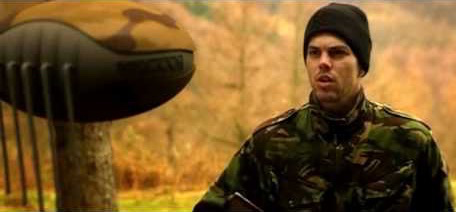Iain (M.) Banks announced yesterday that he has terminal bladder cancer and has less than a year to live. In less than a day 3800 people (including me) signed his guest book/condolence page. Had he announced three days ago during April Fools Day, I would have had a chuckle and rubbed my hands in anticipation of the many more novels he would gift to us. Sadly that joke was not to be.
I finished Against a Dark Background in February, and The Hydrogen Sonata shortly after it came out in October of last year. These two novels brought the number of his books I have read to eleven, which is probably the most of any other author I have read. By far it is his Culture novels I adore.
For me, his Culture novels describe a post-scarcity anarcho-communist society where everyone can choose his, her or its own purpose and is able to live a full, rich life of play. A short fan video directed by Jon Rennie goes far in describing what that life is like:
In our current world of violence, austerity and inequality, the future the Culture offers is immensely liberating.
Certainly the Culture is guided by its Minds, the god-like artificial intelligences (AI) who are fond of their generally mentally and logically inferior pan-human and drone fellow citizens and wish to keep such “interesting companions” around. One cannot ignore the Culture’s (or is it the Mind’s) propensity to meddle in the affairs of other societies less technologically advanced than they are either overtly or covertly via its Special Circumstances adhoc grouping. All for the good of course.
That the Culture has contradictions and problems is evident in his novels and certainly what makes them interesting stories. Banks has not crafted a perfect utopia, even if it is a desirable one.
Sadly no one has adaptated any of Banks’ science fiction novels for film or tv, though some have talked of it. The complexity of the stories and their many characters make it difficult to adapt, certainly. His first two Culture novels, Consider Phlebas and The Player of Games are probably the ones that could be most easily adapted. Perhaps some enterprising person will write a screen play for them and ask for funding on Kickstarter. I would certainly give to such an endeavor.
Banks’ impending demise will prevent us from reading future books from his pen. Yet there is no reason others should not be allowed to create in his sandbox. Let his wife and family have the books he created for the next seventy years (the term of copyright in the US). By opening up the worlds and galaxies he created for others to use and adapt, he would give us a truly wonderful gift.

